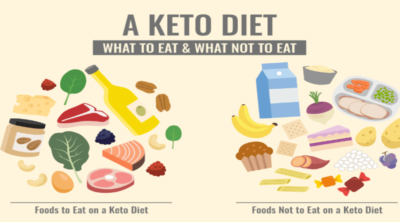
Spirulina contains more than 65 percent complete protein, and provides various health benefits to humans. Available in the form of powder, flakes, and tablets, spirulina is sold as a dietary supplement in various health food stores.
Micro-algae as a food source has been known to mankind since the early 15th century. A major food source for the Aztecs and the Mesoamericans until as late as the 16th century, spirulina has become the common interest of nutrition experts and health-conscious people all over the world. Spirulina is a blue-green algae or cyanobacteria, characterized by simple cellular structures. It is used as whole food or a dietary supplement to ensure good health.
The name ‘spirulina’ is coined with reference to the spiral coil-like structure exhibited by this cyanobacteria. In its natural habitat, spirulina is found filamentous and free-floating. It is abundant in tropical and sub-tropical lakes, where there is abundant supply of carbonates. Commercial production of spirulina supplements are done from two species, namely, Arthrospira platensis and Arthrospira maxima. These are adaptable in freshwater as well as marine water, making them easy for culturing in artificial ponds.
| All values listed per 1.76 oz. Spirulina | |
| Proximates | |
| Nutrient | Value |
| Water | 2.34 gm |
| Energy | 145 kcal |
| Protein | 28.74 gm |
| Total Lipid | 3.86 gm |
| Carbohydrate (by difference) | 11.95 gm |
| Total Dietary Fiber | 1.8 gm |
| Total Sugars | 1.55 gm |
| Minerals | |
| Nutrient | Value |
| Calcium | 60 mg |
| Iron | 14.25 mg |
| Magnesium | 98 mg |
| Phosphorous | 59 mg |
| Potassium | 682 mg |
| Sodium | 524 mg |
| Zinc | 1 mg |
| Vitamins | |
| Nutrient | Value |
| Vitamin C | 5 mg |
| Thiamin | 1.190 mg |
| Riboflavin | 1.835 mg |
| Niacin | 6.410 mg |
| Vitamin B-6 | 0.182 mg |
| Folate, DFE | 47 µg |
| Vitamin B-12 | 0 mg |
| Vitamin A, (Retinol Activity Equivalent) | 14 µg |
| Vitamin E | 2.50 mg |
| Vitamin D (D2+D3) | 0 mg |
| Vitamin D | 0 mg |
| Vitamin K | 12.8 µg |
| Lipids | |
| Nutrient | Value |
| Total Saturated Fatty Acids | 1.325 gm |
| Total Mono-Saturated Fatty Acids | 0.338 gm |
| Total Poly-Saturated Fatty Acids | 1.040 gm |
| Cholesterol | 0 mg |
| Others | |
| Nutrient | Value |
| Caffeine | 0 mg |
Source: USDA (United States Department of Agriculture)
Spirulina nutrition facts are understandable from the several health benefits offered by this blue-green algae. However, similar to any other nutritional supplement, spirulina has some adverse effects too. One of the major health concerns is the presence of microcystins, a potential toxin for humans and livestock. Also, phenylalanine, an essential amino acid, is found in spirulina, which causes unusual reactions in patients with phenylketonuria.
It should be noted that products that contain or are made from spirulina blue-green algae are not considered a health risk. However, there are a lot of products that claim to be made from spirulina, but are made from other blue-green algae. As such, it is imperative that people buy only products made from spirulina, and from reliable sources. Unfortunately, as it is marketed as a dietary supplement, there is no standard regulation for manufacturing spirulina tablets, powder, or flakes; care should be taken that the supplement is bought from a reputed brand.


